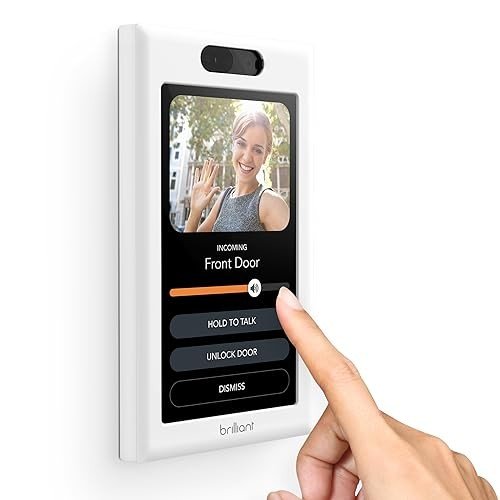Traditional Lighting in the UK: A Comprehensive Overview
Traditional lighting holds a cherished place in the homes and public areas of the United Kingdom. With its capability to evoke nostalgia, beauty, and heat, traditional lighting fixtures use not only aesthetic appeal however also practical value. This post explores the various types of traditional lighting typical in the UK, their history and advancement, popular designs, and how to include them into modern decoration.
A Historical Perspective on Traditional Lighting
The evolution of lighting in the UK has been extensive. From the flickering flames of candle lights and oil lamps to the arrival of gas and electric lights, the journey is as interesting as it is enlightening.
Secret Milestones in Lighting History:
- Candles (Before 1800s): The earliest kind of synthetic light, using tallow or beeswax.
- Oil Lamps (Late 18th Century): These ended up being popular in homes and theaters, providing brighter lighting than candles.
- Gas Lighting (Early 19th Century): Revolutionized public and street lighting before electrical energy took precedence.
- Electric Lighting (Late 19th Century): Marked the shift to modernity, with incandescent bulbs gradually replacing older types.
Each of these developments paved the method for traditional lighting, which still incorporates ancient strategies into contemporary designs.
Kinds Of Traditional Lighting
Traditional lighting can be categorized into several unique types, each with its special characteristics.
1. Chandeliers
Chandeliers are often the centerpiece of a room. They can be found in different designs, from elaborate Victorian styles to simple, rustic designs.
Popular Features:
- Crystal decorations
- Iron structure
- Various bulb types
2. Wall Sconces
Wall sconces provide both artistic style and soft lighting. They can be utilized in corridors, living rooms, or restrooms, improving the environment of a space.
Typical Styles:
- Candle-style sconces
- Brass or iron fixtures
- Vintage-inspired designs
3. Table Lamps
Table lamps embody the adaptability of traditional lighting as they can fit into any room. Varying from easy styles to elaborate pieces, they are ideal for reading nooks, side tables, or desks.
4. Floor Lamps
Comparable to table lamps in style and function, floor lamps can develop relaxing corners in a home. Vintage designs often consist of tripod bases or elaborate patterns.
5. Lanterns
Though often associated with outdoor settings, traditional lanterns can also be used indoors for a rustic touch. They come in various products consisting of wood and metal.
Including Traditional Lighting into Modern Decor
In a world significantly leaning towards minimalism and modern styles, traditional lighting still holds its ground. The key is to preserve a balance. Here are some pointers for including traditional lighting into a contemporary home:
1. Mix Styles
Integrate traditional lighting with modern furnishings to create a diverse room. For instance, a vintage chandelier can be hung above a smooth table.
2. Use Dimmer Switches
To control the ambiance, install dimmer switches that permit for soft lighting, which matches both traditional and modern interiors.
3. Opt for Mixed Materials
Select lighting fixtures that integrate different materials, such as a wooden lamp with a metal or glass base, to bridge the gap in between old and brand-new.
4. Highlight Architectural Features
Usage traditional fixtures to highlight distinct architectural features in your house. For instance, hanging a vintage lantern in a hallway with exposed brick improves its rustic appeal.
5. Include Natural Elements
Pick designs that integrate natural materials such as wood or wrought iron. These components tend to mix well with modern design while retaining a traditional style.
Table: Comparison of Traditional Lighting Types
| Lighting Type | Description | Common Materials | Typical Settings |
|---|---|---|---|
| Chandeliers | Decorative ceiling fixtures, frequently elaborate | Crystal, metal | Dining-room, ballrooms |
| Wall Sconces | Installed fixtures that supply ambient light | Brass, iron | Hallways, living spaces |
| Table Lamps | Portable lamps for tables and desks | Glass, ceramic | Bed rooms, workplaces |
| Floor Lamps | Standalone lamps for corner lighting | Wood, metal | Living rooms, dens |
| Lanterns | Rustic or vintage source of lights | Wood, metal | Patios, gardens |
Frequently Asked Questions
1. What is traditional lighting?
Answer: Traditional lighting describes lighting fixtures that embody historical or timeless styles, often characterized by the usage of elaborate products, intricate patterns, and a warm aesthetic.
2. How can I keep traditional lighting fixtures?
Answer: Regular cleaning and occasional deep cleaning are vital. For fixtures with glass or crystals, utilize a moderate glass cleaner. For metal elements, ensure you utilize appropriate cleansing solutions that will not harm the finish.
3. Are traditional lighting fixtures energy-efficient?
Response: Many traditional fixtures can accommodate modern LED bulbs, which offer better energy efficiency. Constantly inspect Buy Designer Lighting UK when changing to LED choices.
4. Can I blend traditional lighting with modern design?
Response: Yes, mixing traditional lighting with modern design can develop an uniquely welcoming space. Balance is vital; go with complementary styles to preserve visual harmony.
5. What is the best method to select traditional lighting for my home?
Answer: Consider your home's overall style, the function of the space, and personal taste. Take measurements to ensure suitable sizing and select materials and colors that balance with existing decor.
Traditional lighting acts as an enduring link to history, craftsmanship, and looks, showing that classic designs have their rightful place, even in the middle of progressing trends. Comprehending the different types of traditional lighting and their application can assist homeowners create inviting areas that show both beauty and warmth, perfectly mixing the past with today.

